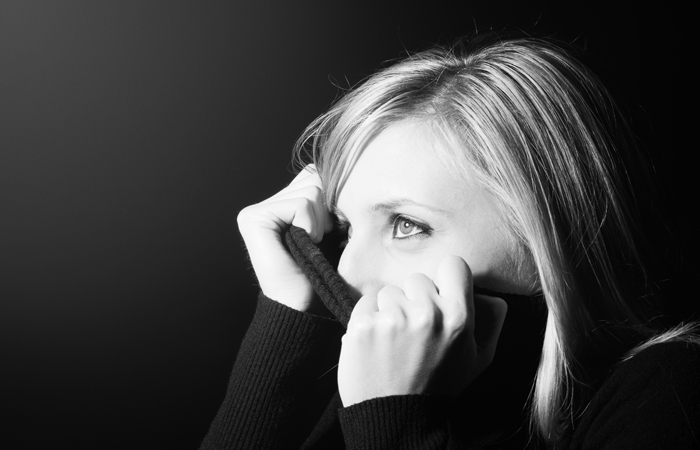Mind and body
In Population Health
Follow this topic
Bookmark
Record learning outcomes
With the help of the upcoming Mental Health Awareness Week, pharmacies can offer customers support and raise awareness of the resources available to those struggling with their mental health
The notion that people have to look a certain way and if they don’t match the ‘ideal’ body then there’s something wrong with them is an unfortunate reality in today’s society. People are often presented with idealistic, unrealistic, airbrushed images in magazines, advertising, social media and online that can make them feel inadequate and insecure about the way they look. But it’s not just this imagery that can cause problems. Things like fitness apps and diet trends also have the ability to make people feel under pressure about the way they look.

These body issues can affect anyone at any age and in different ways, and all of these can directly impact mental health, from depression and anxiety to self harm, eating disorders and body dysmorphic disorder (BDD).
What’s more, mental health issues can exacerbate negative body image, creating a vicious cycle that is difficult to break out from.
The facts
A survey commissioned by the Mental Health Foundation (MHF) in 2018 on the issue of stress found that 30 per cent of all adults have felt so stressed by body image and appearance that they felt overwhelmed or unable to cope.
Participants were asked to select from a list the factors that had caused them “to experience high levels of stress over the last year”. They were told that in this instance, stress meant “times where you have felt overwhelmed or unable to cope as a result of pressures that felt unmanageable”.
Some 36 per cent of women who felt high levels of stress related this to their comfort with their appearance and body image, compared to 23 per cent of men. Body image issues were also highest in young people. Among those aged 18-24, results showed that almost half of people (47 per cent) said they had felt a high level of stress during the last year about their body image and how comfortable they were with their appearance. This figure steadily declined with age: for 25-34-year-olds, it was 45 per cent, for 35-44 year-olds it was 32 per cent, for 45-54-year-olds it was 27 per cent and for those aged 55 and over, it was 18 per cent.
On a mission
Off the back of this survey the Mental Health Foundation has chosen the theme ‘Body Image: How we think and feel about our bodies’ for this year’s Mental Health Awareness Week (13-19 May).
This awareness week has taken place each year since 2001 with the aim of inspiring action to promote the message of good mental health for everyone, recognising people in need of help and establishing support. Commenting on the week, Rachel Baird, Mental Health Foundation spokesperson, said: “The week is important because good mental health is fundamental to people’s thriving. It is the essence of who we are and how we experience the world. But compared to physical health, little is commonly known about mental ill health and how to prevent it. We want that to change.”
With the focus turning to body image this year, the week will consider how people think and feel about their bodies and raise awareness of the mental health support that can be offered within communities. The MHF is urging everyone to get involved so these messages can reach as many people as possible, and pharmacy teams are ideally placed to help. MHF cheif executive CEO Mark Rowland commented: “This year’s Mental Health Awareness Week theme ‘Body Image’ has a direct relevance to everyone reading this. All of us live with our bodies as they evolve and change. Just as all of us have a role in shaping an inclusive culture where we help others feel comfortable in their own skin.”
Getting involved
There’s a myriad of ways pharmacy teams can get involved:
- Get talking about body image and mental health on social media (see panel below for details)
- Wear and sell green ribbons – the international symbol for mental health awareness – to highlight that the pharmacy is a safe space for people to talk about mental health
- Get creative and host an awareness raising and/or fundraising event and add it to the map on the MHF’s website.
The MHF has produced a range of resources – including posters, leaflets, social media graphics and badges – that are available to download and order so that pharmacy teams can raise awareness of the campaign and help to initiate conversations with customers. Evidence-based booklets focusing on how people can look after themselves in relation to different aspects of their mental health are also available to download.
No matter how big or small their campaign, pharmacy teams can make a huge difference to people struggling with their mental health. Offering a safe space for people to talk and providing information that people can take away to read in their own time are key and have the potential to change or even save lives.
Get social
Receive updates on the campaign leading up to the week and share your activities using the following social media handles and hashtags:
Facebook: @mentalhealthfoundation
Instagram: @mentalhealth
Twitter: @mentalhealthfoundation
#BeBodyKind
#MentalHealthAwarenessWeek
Find out more via the Mental Health Foundation.
